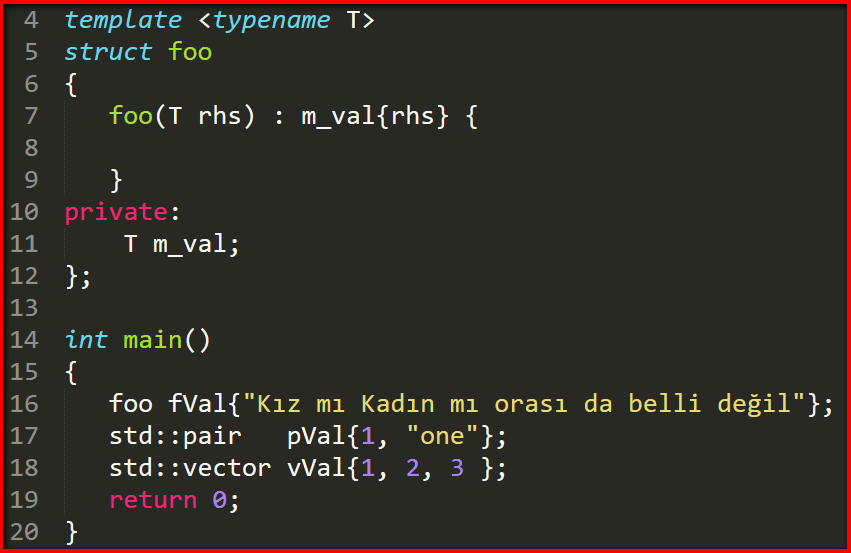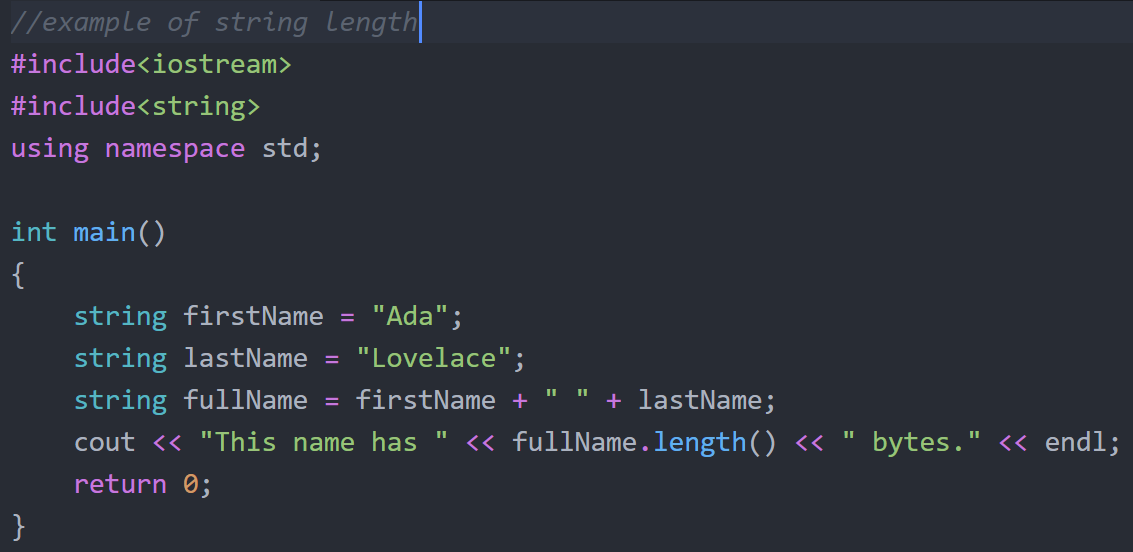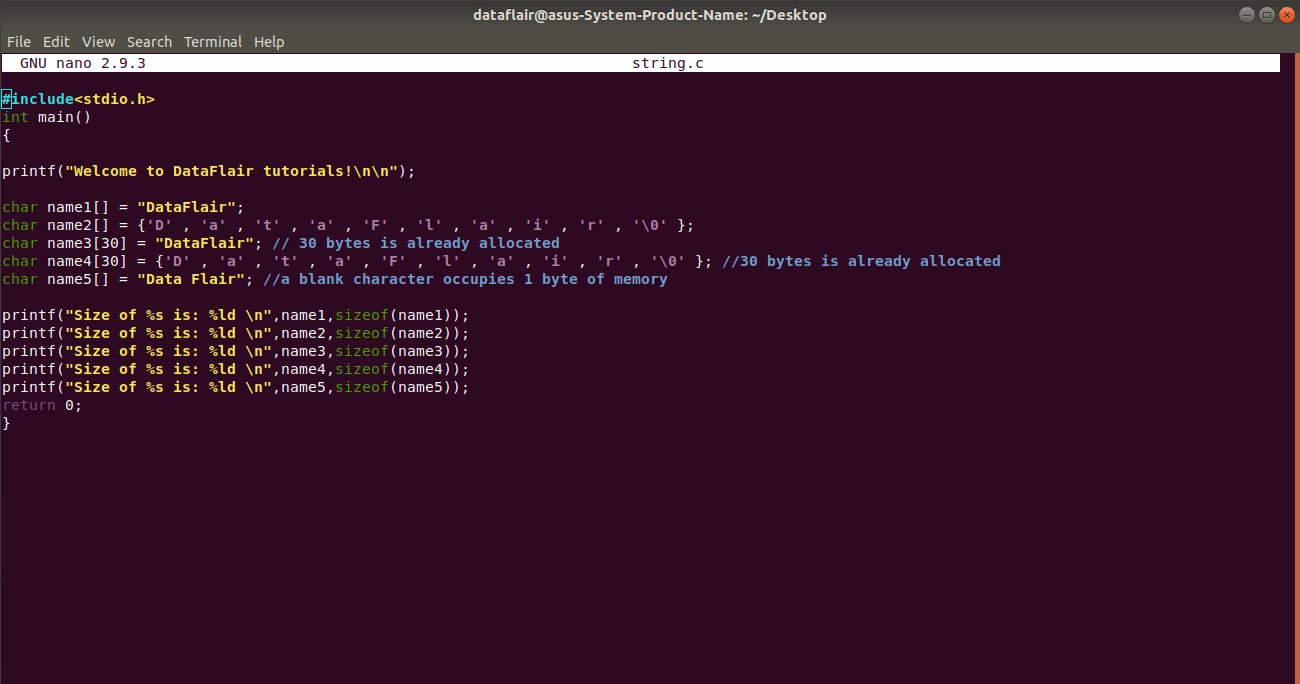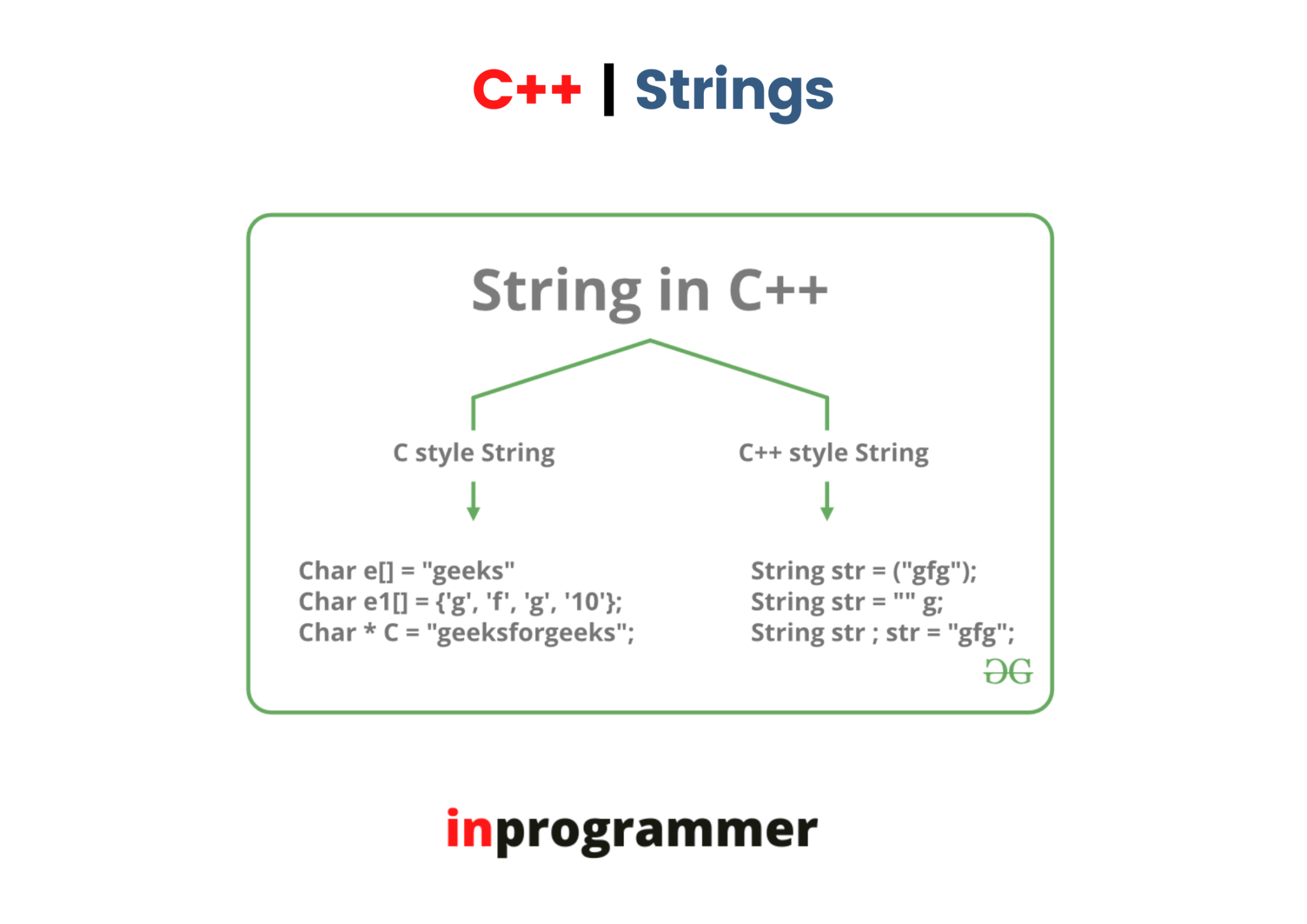C++ String Template Argument
C++ String Template Argument - Templates are the basis for generic programming in c++. Web template argument deduction attempts to determine template arguments (types for type template parameters ti, templates for template template parameters. Web using string literals as c++ template parameters. This post explores how to trick c++ into accepting a string literal as a template parameter. They are often the better choice because they do not impose. // array of 10 integers array<int, 10> a1 // array of 5 double type numbers. Web template < fixed_string > // [1] struct named_type {}; Web the arguments must be specified whenever a template class is created. Template < > // [2] struct named_type < integer > {using type = int;}; Usually you'd pass it as a. Web template argument substitution. Web template < fixed_string > // [1] struct named_type {}; When all template arguments have been specified, deduced or obtained from default template arguments, every use of a. The original feature proposal mentions how this. This post explores how to trick c++ into accepting a string literal as a template parameter. Is it possible in modern c++ (c++17 or greater) to pass a string literal as a parameter to a c++ template? Web this is not how one normally does it. When all template arguments have been specified, deduced or obtained from default template arguments, every use of a. I realize you could do this with constructor argument; Web stringify template. Web learn c++ tutorial learn c# tutorial learn r tutorial learn kotlin tutorial learn go tutorial. Template < > // [2] struct named_type. Web this is not how one normally does it. Is it possible in modern c++ (c++17 or greater) to pass a string literal as a parameter to a c++ template? We have created a bunch of responsive. #include #define stringify (x) #x template. Web the arguments must be specified whenever a template class is created. Usually you'd pass it as a. I often find the modifiers much simpler to use than c++ i/o manipulators, and if i'm. I realize you could do this with constructor argument; #include #define stringify (x) #x template. Templates are the basis for generic programming in c++. We have created a bunch of responsive website templates you. This post explores how to trick c++ into accepting a string literal as a template parameter. // array of 10 integers array<int, 10> a1 // array of 5 double type numbers. Web this is not how one normally does it. When all template arguments have been specified, deduced or obtained from default template arguments, every use of a. Is it possible in c++ to stringify template arguments? Web templates as template parameters. They are often the better choice because they do not impose. Web this is not how one normally does it. Template < > // [2] struct named_type < integer > {using type = int;}; #include #define stringify (x) #x template. I realize you could do this with constructor argument; Is it possible in c++ to stringify template arguments? They are often the better choice because they do not impose. I realize you could do this with constructor argument; Web templates as template parameters. Passing the callable into the template parameter doesn't let you pass e.g. Web template argument substitution. Template < > // [2] struct named_type. Is it possible in c++ to stringify template arguments? The original feature proposal mentions how this. We have created a bunch of responsive website templates you. I often find the modifiers much simpler to use than c++ i/o manipulators, and if i'm. Web template argument deduction attempts to determine template arguments (types for type template parameters ti, templates for template template parameters. Templates are the basis for generic programming in c++. Is it possible in c++ to stringify template arguments? Web variadic templates can also be used to create functions that take variable number of arguments. I realize you could do this. Web template argument deduction attempts to determine template arguments (types for type template parameters ti, templates for template template parameters. We have created a bunch of responsive website templates you. Is it possible in c++ to stringify template arguments? I often find the modifiers much simpler to use than c++ i/o manipulators, and if i'm. I realize you could do this with constructor argument; They are often the better choice because they do not impose. When all template arguments have been specified, deduced or obtained from default template arguments, every use of a. This post explores how to trick c++ into accepting a string literal as a template parameter. The original feature proposal mentions how this. Web using string literals as c++ template parameters. #include #define stringify (x) #x template. Is it possible in modern c++ (c++17 or greater) to pass a string literal as a parameter to a c++ template? Template < > // [2] struct named_type. Web templates as template parameters. Web #include template struct type_string_t { static constexpr const char data[sizeof.(chars)] = {chars.}; Passing the callable into the template parameter doesn't let you pass e.g. Templates are the basis for generic programming in c++. Web template argument substitution. Web variadic templates can also be used to create functions that take variable number of arguments. // array of 10 integers array<int, 10> a1 // array of 5 double type numbers. I realize you could do this with constructor argument; Templates are the basis for generic programming in c++. Web template < fixed_string > // [1] struct named_type {}; Web learn c++ tutorial learn c# tutorial learn r tutorial learn kotlin tutorial learn go tutorial. Web templates as template parameters. Web #include template struct type_string_t { static constexpr const char data[sizeof.(chars)] = {chars.}; // array of 10 integers array Usually you'd pass it as a. Web using string literals as c++ template parameters. Web this is not how one normally does it. Web template argument deduction attempts to determine template arguments (types for type template parameters ti, templates for template template parameters. Web variadic templates can also be used to create functions that take variable number of arguments. The original feature proposal mentions how this. Template < > // [2] struct named_type < integer > {using type = int;}; When all template arguments have been specified, deduced or obtained from default template arguments, every use of a.C++ Template argument deduction for string literals YouTube
C++ CStyle Strings as template arguments? YouTube
CTAD (Class Template Argument Deduction) C++ Learning Tutorials
The C++ string Class
Execution of String Function in C++ using Turbo C++ compiler/ Strings
C++ function parameters and arguments
C++ Printf String Character
C++ Printf String Character
Introduction to default parameters in C++ Desktop of ITers
C++ STRING FUNCTIONS
Is It Possible In Modern C++ (C++17 Or Greater) To Pass A String Literal As A Parameter To A C++ Template?
#Include #Define Stringify (X) #X Template.
I Often Find The Modifiers Much Simpler To Use Than C++ I/O Manipulators, And If I'm.
Web The Arguments Must Be Specified Whenever A Template Class Is Created.
Related Post:










